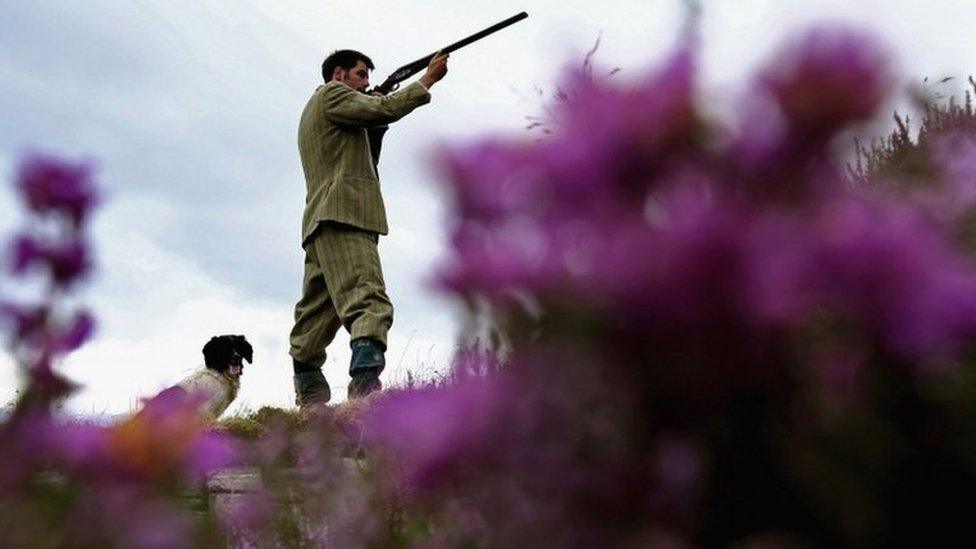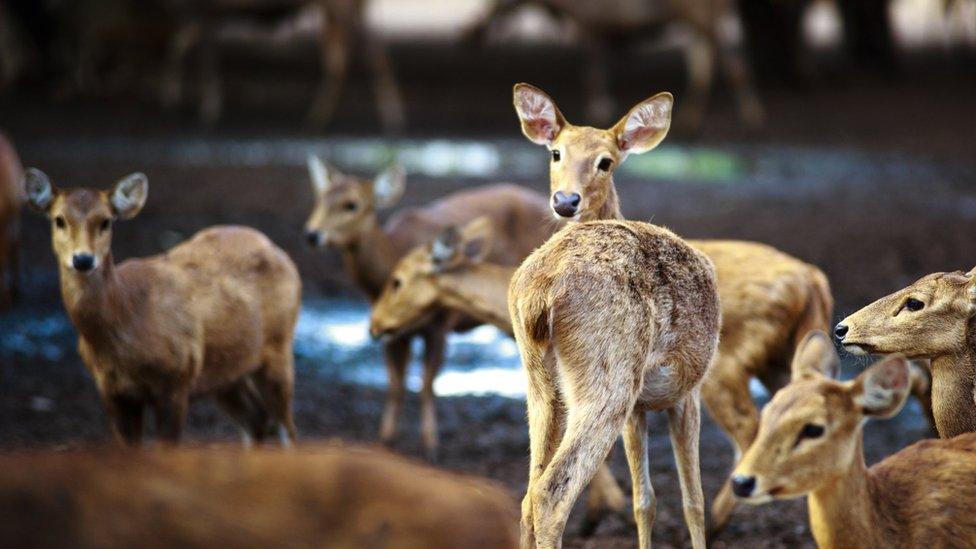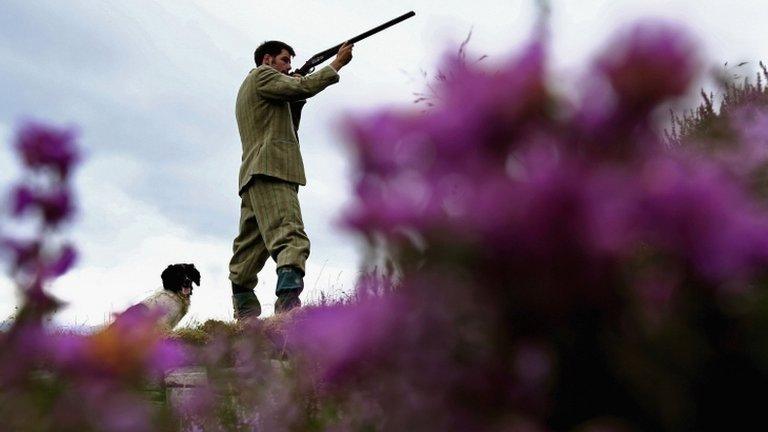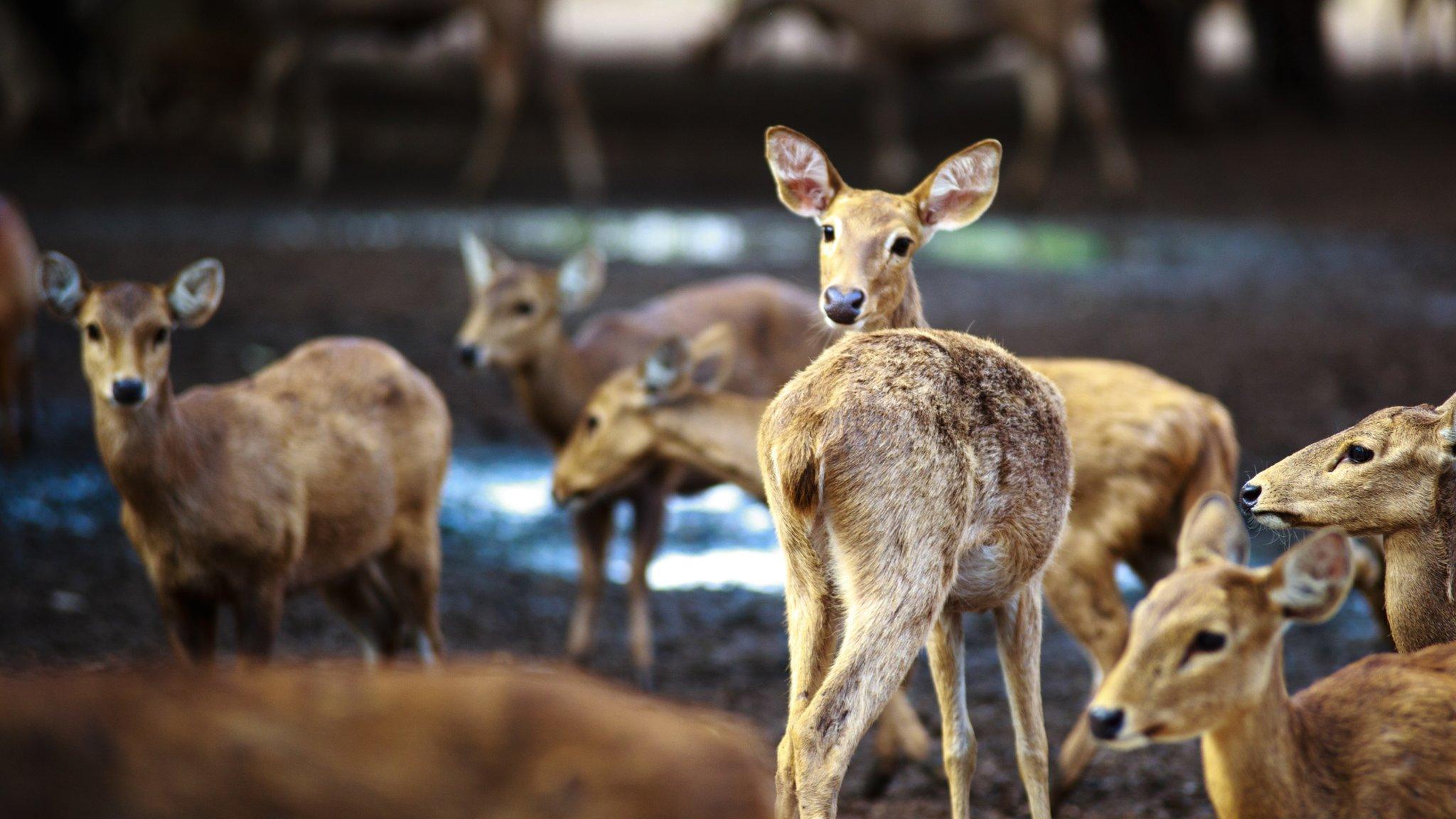Land reform proposals need work, says Holyrood committee
- Published

The Land Reform Bill contains a range of proposals for changes to land management in Scotland
The Scottish government's Land Reform Bill needs to be "enhanced and strengthened" to deliver the "radical changes needed", MSPs have declared.
A report from the rural affairs and environment committee said the land management proposals need "more work".
The bill was also rejected by delegates at the SNP conference in October, who argued it should be strengthened.
Landowners say the bill as it stands would have "far-reaching and detrimental consequences" for business.
The Land Reform Bill proposes a series of changes, including an end to business rate exemptions for shooting and deerstalking estates, giving communities a right to buy land to help sustainable development, and making information on who owns land and its value more readily available to the public.
MSPs on the Rural Affairs, Climate Change and Environment Committee were asked to prepare a report on the proposals.
Convener Rob Gibson said the committee shared the government's aim of delivering "radical" land reform, but said some parts as drafted "require more work to deliver their ambitions."
He said: "Key issues - such as improving transparency on who owns, controls and benefits from land, making the rent review process fairer and more transparent, and creating a better environment for investment in holdings by both tenants and landlords - require either further consideration or more detailed explanation."

Management of deer forests is one of the topics covered by the bill
Aileen McLeod, the minister for environment, climate change and land reform, said there was an "energising and exciting debate" around the topic, and said the Scottish government "welcome suggestions to improve and strengthen the legislation".
She said: "There is no doubt that the Land Reform Bill represents the most radical and ambitious programme yet, and is a vital next step in our land reform journey.
"We have an incredible opportunity to secure real, and potentially life-changing, benefits for people and communities across Scotland, and we look forward to exploring the ideas and suggestions of the committee to further strengthen the bill.
"The measures in the bill make important changes to specific rights and responsibilities over land, including provisions to increase the transparency of land ownership. It also puts Scottish communities at the heart of land reform by empowering them through a right to buy land to further sustainable development."
'Rigorous analysis'
Landowners and gamekeepers have voiced concerns about some of the provisions of the bill, and welcomed the extra scrutiny brought by the committee.
A spokesman for the Scottish Gamekeeper's Association backed "a more robust assessment of economic, social and environmental impacts" of parts of the legislation, in particular ending the exemption from non-domestic rates for shootings and deer forests.
He said: "We are pleased the committee has recognised the fundamental role these activities play in rural communities.
"The Scottish government needs to provide a more rigorous analysis of community and economic impacts if it is to justify the removal of exemptions which currently remain in place for many similar rural industries such as aquaculture, forestry and farming."

Gamekeepers and landowners have voiced concerns about parts of the Land Reform Bill
David Johnstone, chairman of Scottish Land and Estates, said the committee had made a "very important intervention" on some topics, but voiced fears about making the bill "more radical".
He said: "The Land Reform Bill, as it stands, will have far-reaching and detrimental consequences for land-based businesses across Scotland, which employ many thousands of people and make a major social, economic and environmental contribution to rural communities.
"There has been so much rhetoric surrounding the bill that has been about 'righting historic wrongs' or 'giving lairds a bashing', that many landowners fear the bill could be in danger of becoming more about inflicting punitive measures on landowners rather than about meaningful reform to benefit all.
"We wholeheartedly agree that Scotland's land should be used for the benefit of the many and believe that both private and community ownership have an important role in delivering that benefit. We will continue to work constructively with the Scottish government and parliamentarians to achieve that objective and appeal for the contribution of land-based businesses to be recognised during the remainder of the parliamentary process."
- Published16 October 2015

- Published28 September 2015

- Published23 June 2015

- Published19 May 2015

- Published26 November 2014
